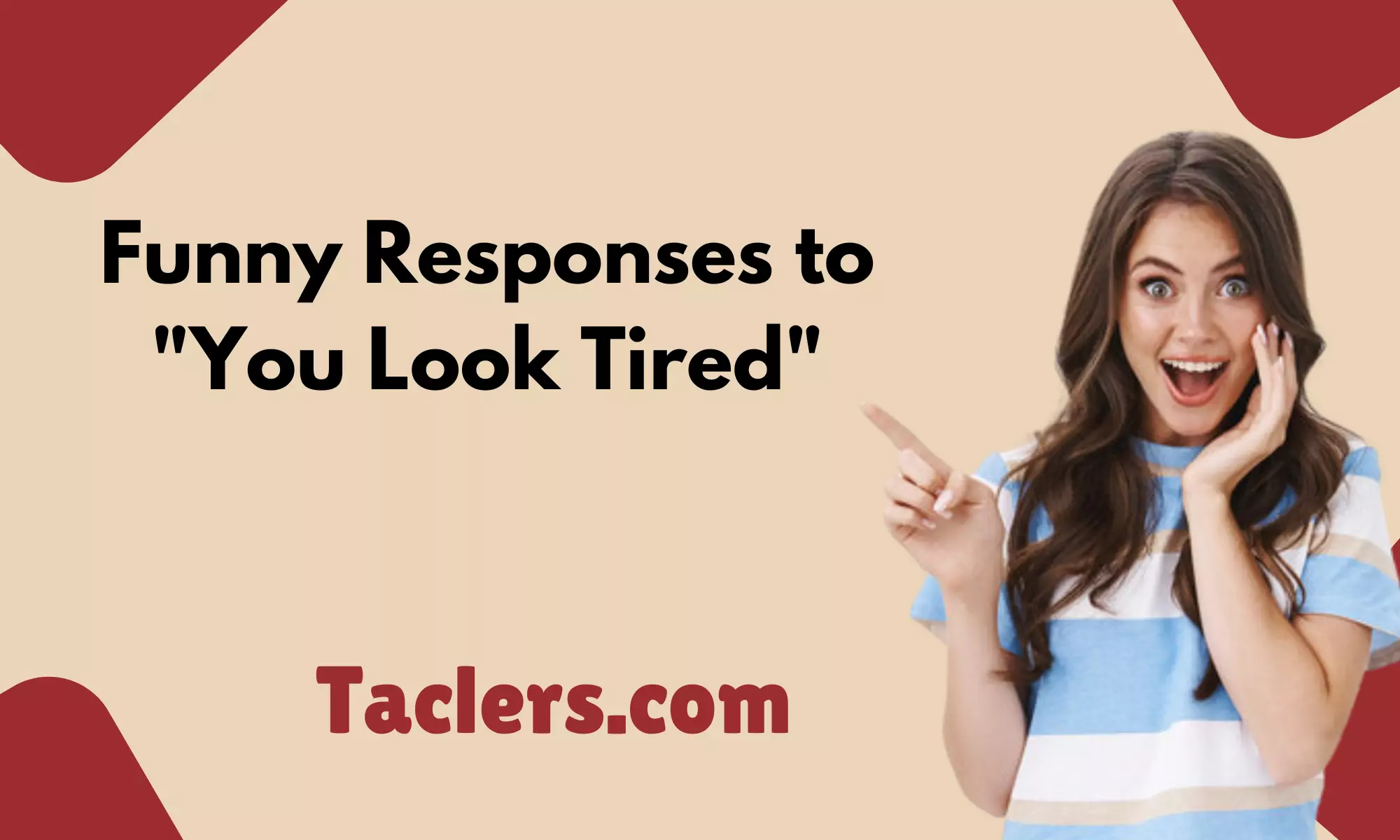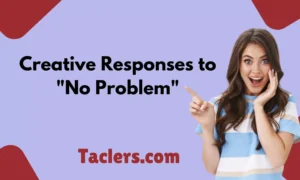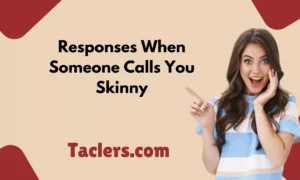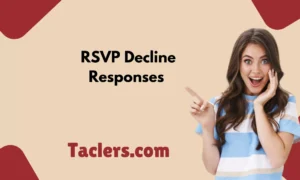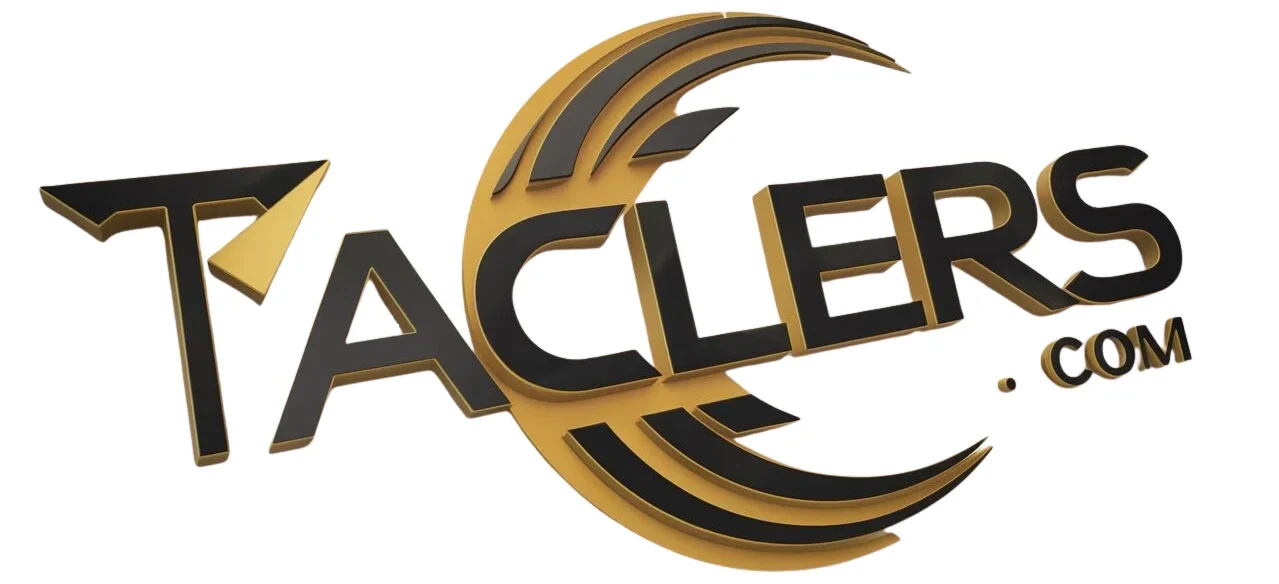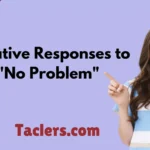When someone tells you that you look tired, it’s often a chance to lighten the mood with a touch of humor.
Here are 30 funny and witty responses to help you handle those comments with a smile and a laugh.
1. “Tired? I thought I was just glowing with exhaustion.”
Explanation:
This response adds a humorous twist to your exhaustion, framing it as a natural glow.
Example:
Person A: You look tired.
Person B: Tired? I thought I was just glowing with exhaustion.
By saying “Glowing with exhaustion,” you turn fatigue into a positive trait.
2. “I’m not tired, I’m just in energy-saving mode.”
Explanation:
A playful way to say you’re conserving your energy, like a device on standby.
Example:
Person A: You look tired.
Person B: I’m not tired, I’m just in energy-saving mode.
By saying “Energy-saving mode,” you humorously imply you’re simply being efficient.
3. “I’m not tired; I’m just practicing for my role as a professional napper.”
Explanation:
A funny response that suggests you’re simply training for a relaxed lifestyle.
Example:
Person A: You look tired.
Person B: I’m not tired; I’m just practicing for my role as a professional napper.
By saying “Professional napper,” you highlight your dedication to rest.
4. “I’m not tired; I’m just giving my eyes a vacation.”
Explanation:
A humorous way to frame tired eyes as a much-needed break.
Example:
Person A: You look tired.
Person B: I’m not tired; I’m just giving my eyes a vacation.
By saying “Eyes a vacation,” you turn fatigue into a relaxing scenario.
5. “I’m just training for a marathon… of sleep.”
Explanation:
This response humorously suggests that you’re gearing up for a sleep marathon.
Example:
Person A: You look tired.
Person B: I’m just training for a marathon… of sleep.
By saying “Marathon of sleep,” you frame your tiredness as a future goal.
6. “I’m not tired; I’m just auditioning for a zombie role.”
Explanation:
A playful way to suggest you’re embodying a tired character for fun.
Example:
Person A: You look tired.
Person B: I’m not tired; I’m just auditioning for a zombie role.
By saying “Auditioning for a zombie role,” you add a humorous touch to your fatigue.
7. “I’m not tired, I’m just in my natural habitat of exhaustion.”
Explanation:
This response humorously implies that exhaustion is your default state.
Example:
Person A: You look tired.
Person B: I’m not tired, I’m just in my natural habitat of exhaustion.
By saying “Natural habitat,” you joke about your comfort with being tired.
8. “I’m not tired; I’m just conserving my energy for something spectacular.”
Explanation:
A funny way to suggest that you’re saving up your energy for a big event.
Example:
Person A: You look tired.
Person B: I’m not tired; I’m just conserving my energy for something spectacular.
By saying “Something spectacular,” you imply that your exhaustion is strategic.
9. “I’m just giving my face a chance to rest between smiles.”
Explanation:
A humorous response suggesting that your tiredness is due to frequent smiling.
Example:
Person A: You look tired.
Person B: I’m just giving my face a chance to rest between smiles.
By saying “Rest between smiles,” you playfully acknowledge your fatigue.
10. “I’m not tired, I’m just living proof that enthusiasm is exhausting.”
Explanation:
This response humorously links tiredness with being overly enthusiastic.
Example:
Person A: You look tired.
Person B: I’m not tired, I’m just living proof that enthusiasm is exhausting.
By saying “Enthusiasm is exhausting,” you attribute your tiredness to your excitement.
11. “I’m not tired; I’m just on a high-performance mode with low battery.”
Explanation:
A funny way to describe feeling tired as being low on battery but still performing.
Example:
Person A: You look tired.
Person B: I’m not tired; I’m just on a high-performance mode with low battery.
By saying “High-performance mode with low battery,” you humorously combine work and exhaustion.
12. “I’m not tired; I’m just very committed to my pillow.”
Explanation:
A playful response suggesting that your commitment to rest is the cause of your tiredness.
Example:
Person A: You look tired.
Person B: I’m not tired; I’m just very committed to my pillow.
By saying “Committed to my pillow,” you frame your fatigue as a devotion to comfort.
13. “I’m just perfecting the art of looking like I need a nap.”
Explanation:
A humorous take on tiredness as an art form that you’re mastering.
Example:
Person A: You look tired.
Person B: I’m just perfecting the art of looking like I need a nap.
By saying “Perfecting the art,” you make light of your fatigue.
14. “I’m not tired; I’m just operating on ‘nap time’ until further notice.”
Explanation:
A funny way to say you’re on a temporary break due to tiredness.
Example:
Person A: You look tired.
Person B: I’m not tired; I’m just operating on ‘nap time’ until further notice.
By saying “Nap time,” you frame your exhaustion as a temporary state.
15. “I’m not tired; I’m just heavily invested in my sleep debt.”
Explanation:
A playful way to describe your tiredness as a result of accumulating sleep debt.
Example:
Person A: You look tired.
Person B: I’m not tired; I’m just heavily invested in my sleep debt.
By saying “Sleep debt,” you humorously relate your fatigue to financial terms.
16. “I’m just rehearsing for my role as a sleep-deprived superhero.”
Explanation:
A funny response suggesting that your tiredness is part of a superhero training.
Example:
Person A: You look tired.
Person B: I’m just rehearsing for my role as a sleep-deprived superhero.
By saying “Sleep-deprived superhero,” you add a comic twist to your exhaustion.
17. “I’m not tired; I’m just showcasing my new ‘worn-out’ look.”
Explanation:
A humorous take on tiredness as a fashion statement or style.
Example:
Person A: You look tired.
Person B: I’m not tired; I’m just showcasing my new ‘worn-out’ look.
By saying “New ‘worn-out’ look,” you turn your fatigue into a fashion choice.
18. “I’m not tired; I’m just on a permanent vacation from energy.”
Explanation:
A funny response suggesting that you’re taking an extended break from being energetic.
Example:
Person A: You look tired.
Person B: I’m not tired; I’m just on a permanent vacation from energy.
By saying “Permanent vacation,” you humorously frame your tiredness as a long-term break.
19. “I’m not tired; I’m just living the dream… of a very sleepy person.”
Explanation:
A playful response that combines being tired with the idea of living a dreamy life.
Example:
Person A: You look tired.
Person B: I’m not tired; I’m just living the dream… of a very sleepy person.
By saying “Living the dream,” you link your exhaustion to a dreamlike state.
20. “I’m just mastering the art of looking like I need a vacation.”
Explanation:
A humorous way to suggest that your tiredness is part of a mastery of vacation vibes.
Example:
Person A: You look tired.
Person B: I’m just mastering the art of looking like I need a vacation.
By saying “Mastering the art,” you make light of your need for rest.
21. “I’m not tired; I’m just experiencing an extended power nap.”
Explanation:
A funny take on tiredness as a prolonged nap rather than just fatigue.
Example:
Person A: You look tired.
Person B: I’m not tired; I’m just experiencing an extended power nap.
By saying “Extended power nap,” you frame your tiredness as a long rest period.
22. “I’m not tired; I’m just letting my inner couch potato out.”
Explanation:
A playful response suggesting that you’re embracing a relaxed, lazy persona.
Example:
Person A: You look tired.
Person B: I’m not tired; I’m just letting my inner couch potato out.
By saying “Inner couch potato,” you humorously admit to embracing laziness.
23. “I’m not tired; I’m just auditioning for a role as a sleep expert.”
Explanation:
A humorous way to describe your tiredness as part of a role you’re practicing for.
Example:
Person A: You look tired.
Person B: I’m not tired; I’m just auditioning for a role as a sleep expert.
By saying “Sleep expert,” you frame your exhaustion as professional preparation.
24. “I’m not tired; I’m just collecting all the sleep I’ve missed.”
Explanation:
A funny response suggesting you’re trying to catch up on lost sleep.
Example:
Person A: You look tired.
Person B: I’m not tired; I’m just collecting all the sleep I’ve missed.
By saying “Collecting sleep,” you imply you’re making up for lost rest.
25. “I’m not tired; I’m just rehearsing for my role as a sleepyhead.”
Explanation:
A playful response suggesting that your tiredness is part of a rehearsal process.
Example:
Person A: You look tired.
Person B: I’m not tired; I’m just rehearsing for my role as a sleepyhead.
By saying “Rehearsing for a sleepyhead,” you make light of your fatigue.
26. “I’m not tired; I’m just channeling my inner sloth.”
Explanation:
A humorous way to frame your tiredness as embodying a lazy, relaxed animal.
Example:
Person A: You look tired.
Person B: I’m not tired; I’m just channeling my inner sloth.
By saying “Inner sloth,” you jokingly connect your fatigue to a slow-moving creature.
27. “I’m not tired; I’m just perfecting my impression of a human pillow.”
Explanation:
A funny response suggesting that your tiredness is an impression of a soft, resting object.
Example:
Person A: You look tired.
Person B: I’m not tired; I’m just perfecting my impression of a human pillow.
By saying “Human pillow,” you humorously describe your exhaustion.
28. “I’m not tired; I’m just in my advanced stage of ‘rest mode.’”
Explanation:
A playful way to describe your tiredness as a highly developed state of relaxation.
Example:
Person A: You look tired.
Person B: I’m not tired; I’m just in my advanced stage of ‘rest mode.’
By saying “Advanced stage of rest mode,” you elevate your tiredness to a sophisticated level.
29. “I’m not tired; I’m just practicing the art of being effortlessly relaxed.”
Explanation:
A humorous way to describe your tiredness as a form of effortless relaxation.
Example:
Person A: You look tired.
Person B: I’m not tired; I’m just practicing the art of being effortlessly relaxed.
By saying “Effortlessly relaxed,” you make light of your fatigue.
30. “I’m not tired; I’m just embodying the ‘chill’ in chill-out mode.”
Explanation:
A funny response that frames your tiredness as a state of being in chill-out mode.
Example:
Person A: You look tired.
Person B: I’m not tired; I’m just embodying the ‘chill’ in chill-out mode.
By saying “Embodying the ‘chill’,” you frame your exhaustion as a relaxed state.

Justin Taylor is a storytelling maestro at Taclers.com, blending humor and heart in his captivating articles. With a rich background in creative writing, he has a unique talent for turning everyday reactions into extraordinary tales. Dive into his work for a delightful read that always hits the mark.
